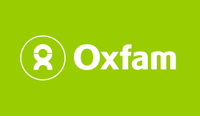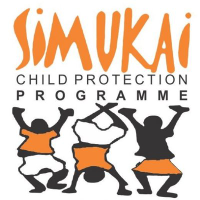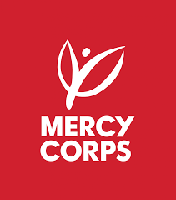CEDIS Project and Learning Briefs and story Documentation
Job Description
Project/Consultancy Title: CEDIS Project and Learning Briefs and story Documentation
Project Location(s): Bulawayo, Mutare, Mutasa
Project:
With funding from the Embassy of Sweden, Mercy Corps is implementing the Catalysing Economic Development through the Informal Sector (CEDIS) program. The 4-year programme aims to improve incomes, working conditions and resilience to shocks and stresses of 30,000 vulnerable young women (70% aged 18-35) in the urban and surrounding rural areas of Bulawayo, Mutare, and Harare through sustainable informal and micro-enterprise livelihoods. The CEDIS program is committed to contributing to greater women’s economic empowerment by achieving improved incomes, better working conditions, and greater economic resilience. Currently the CEDIS program is working with partners across 6 selected sectors which are Small Scale Manufacturing, Agro-processing, Waste Management, Financial Inclusion, Renewable Energy and Machinery. Taking a facilitative approach, the CEDIS program is centred on strengthening the roles of women and women-led enterprises across target sectors, while also addressing strategic cross-cutting market constraints. The program seeks to enable the informal sector system to function more inclusively for women, particularly young women, for increased productivity, employment and income opportunities. In the end, we expect that by having access to better opportunities in the informal sector, women would have greater economic empowerment; thereby having stronger agency and decision-making power towards their economic activities as well as policy-making processes. Therefore, women’s economic vulnerability in the informal sector will be reduced and resilience will increase.
CEDIS program is at a key stage of transitioning from a pilot to a full scale up implementation phase whereby the number and size of partnerships and reach of program participants will significantly increase as well as expanding geography of implementation. Thus, during this stage of implementation, it is critical to document lessons learnt to inform intervention design as well as share evidence across a wide range of stakeholders.
The program’s intervention logic entails:
Goal: Improved incomes, working conditions and resilience to shocks and stresses for 30,000 young women (70% aged 18-35yrs) in the informal economy.
Outcome 1: Female employees and female suppliers earn more through increased quantity of work or increased rates of pay.
Outcome 2: Women-led enterprises experience improved business performance.
Outcome 3: Young women and women-led enterprises experience an improved business environment.
Rationale:
Documenting lessons learned and success stories early on after completion of pilot implementation helps to promote sharing of evidence-based practices that have shown to be successful in implementing especially in Market Systems Development programs. This will stimulate program enhancement and maximization of available resources within the organisation and its partners by acting as a mechanism for continuous learning, feedback, reflection and analysis of what did and did not work, how it worked and why. The lessons learned could then be used to inform scaling up or replication of proven critical success factors and lessons learnt. It is also intended to demonstrate the value that Mercy Corps has added in terms of designing and implementing sustainable and impactful program through this CEDIS project using the Market Systems Development approach
Objectives of the assignment
The CEDIS project would like to document achievements realized in implementing this project in a structured manner, focusing on identifying the specific factors of success, summarizing the actual actions being undertaken on the ground and describing the impact of interventions on the lives of those for whom it is being implemented. The documentation will also attempt to propose practices that can be maintained and replicated or scaled up in the future. The documentation will combine human stories and voices of target program participants with results based on official reports and accounts of technical staff and community leaders.
The specific Objectives of the assignment are as follows:
· Document success stories and lessons learned from the implementation of interventions during the pilot phase of the project
· Create categorized information pack from compiled material for distribution to stakeholders
Duties and Responsibilities
Tasks and Responsibilities
In order to achieve the envisaged objectives, the consultant under the overall supervision of CEDIS management team
• Will work in collaboration with CEDIS team to determine the exact scope of the stories and learning briefs; identify and develop topics
• Prepare tools and formats that will be used for documenting the stories.
• Conduct field work in the selected communities with CEDIS program and partner staff. This will include focus group discussions, interviews, observations and visits to partners and participants to elicit their views
• Prepare success stories and learning briefs by analysing and presenting relevant information about project implementation.
• Frame lessons in an overarching narrative that articulates key learnings from use of a market systems development approach working with private market actors by engaging with women in the informal sector
• Produce the text, photographs and infographics for an info-pack highlighting success stories and including voices of project participants and other stakeholders.
Qualifications and Experience
Deliverables and Timeframe:
The consultant will deliver to Mercy Corps
• An inception report demonstrating understanding of the tasks in the ToR and how they propose to accomplish the required tasks within the indicated timeline
• A high-quality information pack of success stories and learning briefs (number of stories and learning briefs will be agreed upon service contract agreement signing)
All deliverables should be submitted to Mercy Corps, CEDIS project management within a maximum of 45 days from signing of contract
Supervision:
The consultant will work under the direct supervision of the CEDIS Project Management Team.
Qualifications and experience
The individual, firm or proposed team should possess the following qualifications
- University degree in Journalism, Communications or related field.
- Minimum 5 years in research and evaluation with experience in data collection, analysis and reporting.
- Professional experience in market systems development, market linkages, value chain analysis and/or development.
- Excellent written and oral skills.
- Proven experience in working with international organisations
- Photography skills and experience
- Excellent editing skills and ability to integrate human interest with statistics and technical reports to present credible content.
- High sense of journalistic ethics and in-depth understanding of ethical issues in data collection
- Ability to deliver products on time against tight deadlines.
- Demonstrates initiative, creativity and flexibility
Language:
● Excellent written and spoken English (understanding of local languages especially Shona and Ndebele is an added advantage)
How to Apply
Diversity, Equity & Inclusion
Achieving our mission begins with how we build our team and work together. Through our commitment to enriching our organization with people of different origins, beliefs, backgrounds, and ways of thinking, we are better able to leverage the collective power of our teams and solve the world’s most complex challenges. We strive for a culture of trust and respect, where everyone contributes their perspectives and authentic selves, reaches their potential as individuals and teams, and collaborates to do the best work of their lives.
We recognize that diversity and inclusion is a journey, and we are committed to learning, listening and evolving to become more diverse, equitable and inclusive than we are today.
Equal Employment Opportunity
We are committed to providing an environment of respect and psychological safety where equal employment opportunities are available to all. We do not engage in or tolerate discrimination based on race, color, gender identity, gender expression, religion, age, sexual orientation, national or ethnic origin, disability (including HIV/AIDS status), marital status, military veteran status or any other protected group in the locations where we work.
Safeguarding & Ethics
Mercy Corps team members are expected to support all efforts toward accountability, specifically to our stakeholders and to international standards guiding international relief and development work, while actively engaging communities as equal partners in the design, monitoring and evaluation of our field projects. Team members are expected to conduct themselves in a professional manner and respect local laws, customs and MC's policies, procedures, and values always and in all in-country venues.
Application Instructions:
Send a Cover Letter, Resume and a detailed proposal to impact stories and learning briefs documentation outlining the consultant(s) understanding of this task, proposed methodology clearly indicating how they intend to conduct the field data collection, analysis and reporting, clear work plan indicating how they will cover all the areas to be documented, quality assurance plan, and budget before application deadline 08 November 2024 via [email protected] . In the case of applicants being a group or a consulting firm, kindly include CVs of the individuals that will be involved in the assignment clearly stating their roles and registration documents (including tax clearance certificate). While submitting your application, be sure your email subject line is CEDIS-PD-EOI (Your Name). A sample of similar work conducted will be an added advantage.
Important Note:
● A candidate applying only by sending CV to the designated email will not be considered.
● Please group all your documents into PDF.
● A signed consultancy agreement and Scope of Work will be the main documentation required in consultant contracting.
Similar Listings

Baseline Assessment for the project, “Integrated Emergency Response for El Niño Drought Affected Communities in Zimbabwe,
Oxfam — Harare

Terms Of Reference
Oxfam — Harare

Terms Of Reference
Oxfam — Harare

CALL FOR EXPRESSION OF INTEREST FOR CONSULTANCY SERVICES FOR THE DESIGN AND IMPLEMENTATION OF A CAPACITY DEVELOPMENT PROGRAM FOR SIMUKAI CHILD PROTECTION PROGRAMME
Simukai Child Protection Program — Harare

Location: Harare
Company: Mercy Corps
Expiry Date: 2024-11-08 00:00:00
